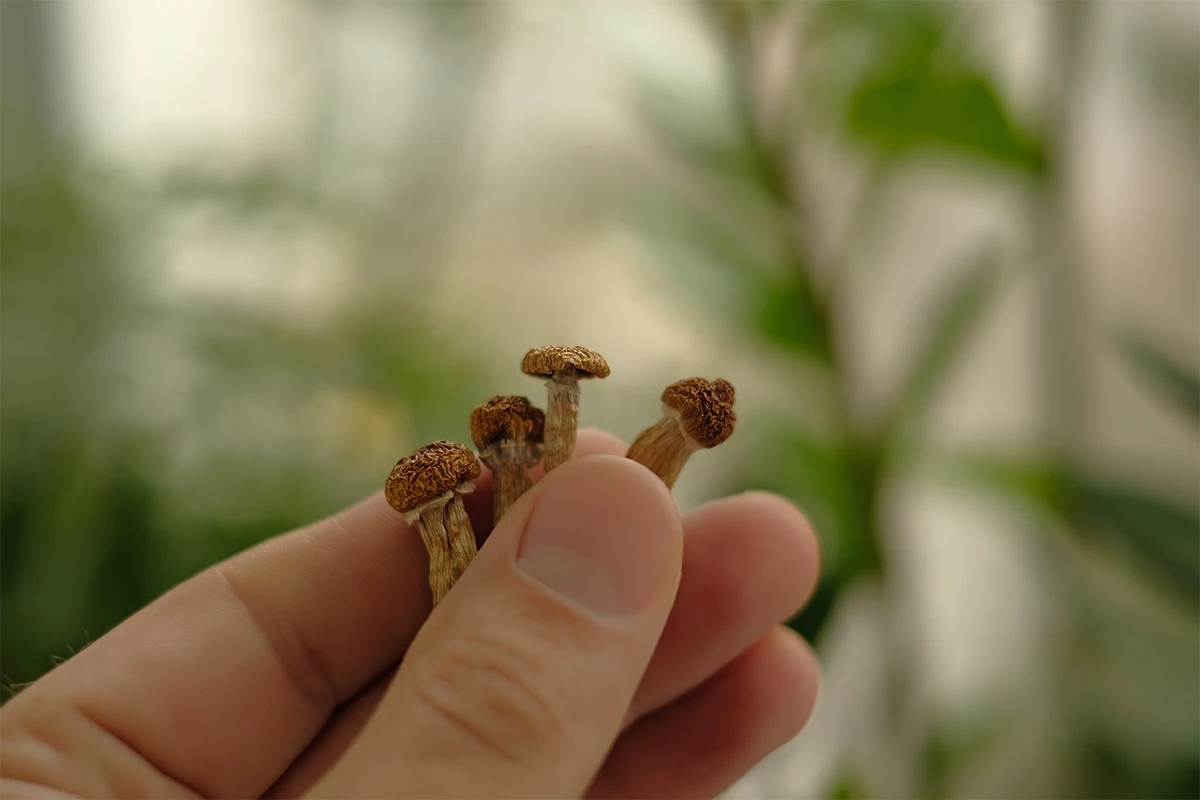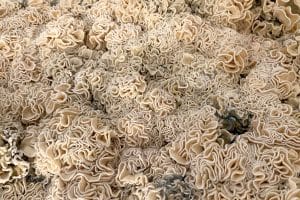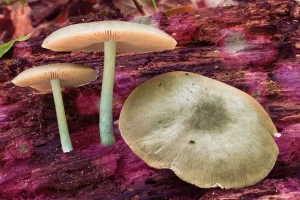The Colorado House of Representatives approved a Senate-passed bill to create a regulatory framework for legal psychedelics under a voter-approved initiative.
The chamber approved the legislation from Senate President Steve Fenberg (D) on third reading in a 45-18 vote on Saturday, following its consideration by committees and on second reading on the floor on Thursday and Friday. The measure now heads back to the other body for concurrence and then, potentially, to the governor’s desk.
Members of the House adopted several amendments to the bill on the floor and in committee.
Since being introduced earlier this month, the measure has moved quickly as lawmakers work to enact it before the end of the legislative session on May 6. It passed in two Senate panels in short order before being approved by the full chamber on Tuesday.
Overall, the bill seeks to set up regulations for a psychedelics legalization law that voters passed at the ballot last year, largely focusing on rules for using the substances in licensed healing centers under the guidance of facilitators. The proposal has received mixed feedback from advocates and stakeholders so far.
“My takeaway from the testimony is that ballot measure 122 is controversial,” Rep. Judy Amabile (D), who is carrying the bill in the House, said during a committee meeting on Thursday. “It has a lot of aspects that some people like. It has aspects that the people who like some parts of it don’t like. It has parts that nobody likes.”
READ: Why Everyone Cares So Much About Colorado’s Psilocybin Bill
“This was voted on by the entire state of Colorado, and the voters spoke and the voters passed ballot measure 122,” the lawmaker said. “Now it is our job as the legislature to implement the will of the voters.”
She added that the bill “is about trusting the voters to have said what they want and implementing this measure in a way that has fidelity to the will of the voters, while also giving us a framework that we can legally and administratively execute on.”
How to Grow Shrooms Bundle
Take Both of Our Courses and Save $90!
“Now we have to implement it, and we are trying to implement this in a safe and efficient way,” she said.
The ballot measure called for the creation of an advisory board to develop regulatory recommendations to inform more holistic legislation covering such access, but as that process continues, the Senate president filed a separate bill last week to establish rules.
The legislation seeks to set policies on “healing centers” where adults 21 and older could receive psychedelic treatment, tighten up rules on cultivation and facilitators, establish licensing requirements, dictate state agency regulatory responsibilities and impose penalties for unsanctioned activities.
During Thursday’s House Finance Committee hearing, members adopted a series of amendments, including adding language to clarify that using psychedelics would not be a violation of probation or parole and revising provisions on record sealing so that people couldn’t be charged fees for trying to clear their convictions and that relief couldn’t be automatically denied because of subsequent offenses, while giving district attorneys a definite period of 42 days to object to motions to seal records.
Another adopted amendment makes various changes, including: requiring psychedelic facilitators to inform participants if they are not licensed; making it so psychedelics business employees have to comply with the state’s general fingerprinting rules for practitioners; clarifying that protections for parental rights of people who use psychedelics are limited in cases where the health and safety of a child is threatened; and making changes to definitions of psychedelic business entities that were requested by municipal officials.
At Friday’s Appropriations Committee meeting, the panel approved a technical amendment before sending the legislation to the floor. Because the legislation has been revised, it will need to go back to the Senate for concurrence before potentially being sent to the governor’s desk.
On the floor on Friday, members adopted additional amendments to clarify that personal cultivation of psychedelics can be done outside of a residence (such as in a greenhouse) as long as it is on someone’s own property in an enclosed and locked space, direct regulators to collect data on drug use trends, require regulators develop an equity plan and define federally recognized tribes cited in the bill.
The body also rejected several amendments, including ones that would have given local officials authority to further restrict psychedelic services, required businesses to have liability insurance policies, added progesterone to the definition of natural medicines being legalized and regulated under the bill, included pregnancy resource centers in the definition of healing center while exempting them from licensing requirements and removed the phrase “or related services” from the definition of personal use.
READ: Colorado Legalized Psilocybin Experiences. Now What?
Here are some of the key components of the amended bill:
The bill would maintain the voter-approved ballot measure’s policy of placing no limits on personal possession of psilocybin, ibogaine, mescaline (not derived from peyote), DMT and psilocyn by adults 21 and older.
Public consumption of psychedelics and underage use would be punishable by a $100 fine.
Adults could only cultivate natural psychedelics, and that activity would need to be at a private residence in an enclosed space that could not exceed 12 by 12 feet—unless within a locality that enacted a policy allowing larger grows. Cultivating beyond prescribed limits wold be punishable by a $1,000 fine.
There would be a pathway for record sealing for people with prior convictions for psychedelic-related activities that have been made legal.
A new Division of Natural Medicine under the Department of Revenue (DOR) would play a central role in regulating the therapeutic program and issuing licenses for cultivators, manufacturers, testing facilities and healing centers. That’s one difference from the initiative, which gave primary responsibilities to the Department of Regulatory Agencies (DORA).
A Federally recognized American tribes and Indigenous community working group—which was not contemplated in the ballot initiative—would be created within DORA to identify and address unintended consequences of the reform, particularly as it concerns the possible commercialization of psychedelics and religious or spiritual exploitation of native people.
The legislation clarifies that synthetic psychedelics are not permitted. And possessing psychedelics with “hazardous materials” like solvents would be considered a Class 2 felony.
Initially only psilocybin and psilocyn could be administered at healing centers, but regulators could add additional psychedelics. The bill differs from the ballot measure by making it so regulators would be able to authorize the supervised use of ibogaine at the facilities at any time, rather than waiting until at least June 1, 2026, as is the case for mescaline and DMT.
There would be four categories of licenses: healing centers, cultivation facilities, product manufacturers and and testing facilities.
The bill maintain’s the ballot measures provisions to block localities from banning healing centers, but says they may enact rules governing time, place and manner of operations.
The deadline for regulators to start accepting and reviewing license applications would be pushed back from September 30, 2024 to December 31, 2024.
Licensed psychedelic businesses will be able to deduct expenses from their state taxes, in a partial workaround to the federal 280E provision.
The bill’s findings section notes that “although there may be tremendous potential in utilizing natural medicine for managing various mental health conditions, healing, and spiritual growth, this potential must be appropriately balanced with the health and safety risks that it could pose to consumers as well as the cultural harms it could pose to indigenous and traditional communities that have connections to natural medicine.”
“Considerable harm may occur to indigenous people, communities, cultures, and religions if natural medicine is overly commodified, commercialized, and exploited in a manner that results in the erasure of important cultural and religious context,” it says.
The bill has received mixed early reactions, with some advocates tentatively supporting the basic framework and others strongly opposing the proposal because of what they consider to be excessive regulations.
How to Grow Shrooms Bundle
Take Both of Our Courses and Save $90!
The Senate president said during a committee hearing last week that he ultimately feels that “we’ve struck the right balance,” with the implementation legislation.
“I think we are implementing the spirit of 122,” he said. “I think we’re doing it in a way that provides some consumer protection that is reasonable and doing in a way that provides clarity for folks—for regular citizens but also for law enforcement and the regulators as they go down this path.”
Meanwhile in Colorado, the governor announced on Monday that the state is launching a loan program to support social equity marijuana businesses.
*This article was originally published by Marijuana Moment.

DoubleBlind is a trusted resource for news, evidence-based education, and reporting on psychedelics. We work with leading medical professionals, scientific researchers, journalists, mycologists, indigenous stewards, and cultural pioneers. Read about our editorial policy and fact-checking process here.

DoubleBlind Magazine does not encourage or condone any illegal activities, including but not limited to the use of illegal substances. We do not provide mental health, clinical, or medical services. We are not a substitute for medical, psychological, or psychiatric diagnosis, treatment, or advice. If you are in a crisis or if you or any other person may be in danger or experiencing a mental health emergency, immediately call 911 or your local emergency resources. If you are considering suicide, please call 988 to connect with the National Suicide Prevention Lifeline.



